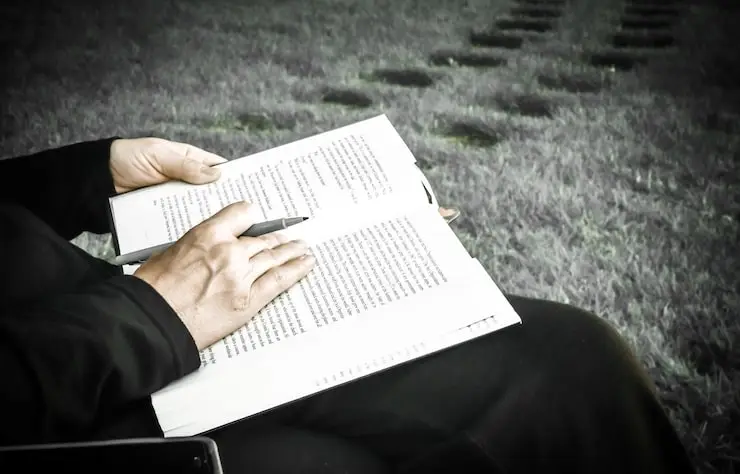Core Philosophy Behind the Work
Ron Patterson’s book centers on the premise that humans accept numerous beliefs without examination. His writing challenges readers to identify and question assumptions that guide daily decisions and worldviews. This approach requires stepping back from comfortable certainties to examine why we believe what we believe.
The concept of blind belief extends beyond religious or political ideologies. Patterson explores how unexamined assumptions permeate everyday thinking, from consumer choices to interpersonal relationships. His work suggests that many behaviors stem from inherited or absorbed beliefs rather than conscious choice.
Examining Social Conditioning
Society transmits beliefs through multiple channels, often without explicit instruction. Patterson’s writings examine how cultural norms, media messages, and peer pressure shape thinking from childhood onward. These influences operate below conscious awareness, making them particularly powerful.
The book explores specific mechanisms of social conditioning. Educational systems, entertainment media, and social institutions all play roles in establishing accepted truths. Patterson analyzes how these systems reinforce certain perspectives while marginalizing others.
The Power of Repetition
Repeated exposure to ideas increases their acceptance, regardless of their validity. Patterson demonstrates how this principle operates across various contexts. Marketing, politics, and social movements all employ repetition to establish beliefs as facts in public consciousness.
His analysis reveals how repetition bypasses critical thinking. When messages appear frequently enough, they become familiar, and familiarity breeds acceptance. This process occurs whether the repeated information is accurate, partially true, or completely false.
Historical Patterns of Belief
Patterson’s book examines how beliefs change over time, showing that ideas once considered absolute truth later become recognized as errors. This historical perspective demonstrates the fallibility of contemporary certainties. What seems obvious to one generation may appear absurd to the next.
The work traces specific examples of belief evolution. Scientific theories, social customs, and moral principles all show patterns of change that reveal the temporary nature of many supposed truths. These examples encourage readers to consider which current beliefs future generations might find questionable.
Cultural Variations
Different cultures maintain different fundamental beliefs about reality, morality, and human nature. Patterson explores these variations to show that many assumed universals are actually cultural constructs. This comparative approach challenges readers to recognize the relativity of their own certainties.
The book avoids cultural relativism while acknowledging cultural influence on belief. Patterson argues for examining beliefs critically regardless of their cultural origin. This balanced approach respects diversity while maintaining that some beliefs align better with observable reality than others.
The Cost of Unexamined Beliefs
Living according to unexamined beliefs carries consequences. Patterson’s writings detail how blind beliefs limit personal growth, create unnecessary conflicts, and prevent optimal decision-making. These costs accumulate over lifetimes, affecting individual satisfaction and collective progress.
The book provides concrete examples of how unexamined beliefs create problems. Financial decisions based on inherited attitudes toward money, relationship patterns rooted in unquestioned assumptions about gender roles, and career choices driven by societal expectations rather than personal interests all demonstrate the practical impact of blind beliefs.
Tools for Critical Examination
Patterson offers practical approaches for identifying and evaluating personal beliefs. These tools include specific questions to ask about accepted truths, methods for tracing beliefs to their sources, and techniques for testing beliefs against evidence.
The book emphasizes evidence-based thinking without dismissing subjective experience. Patterson shows how to distinguish between beliefs supported by verifiable evidence and those maintained through tradition, emotion, or social pressure. This distinction allows readers to make informed choices about which beliefs to retain.
Overcoming Resistance to Change
Changing fundamental beliefs creates discomfort. Patterson addresses this resistance directly, explaining psychological mechanisms that protect existing beliefs from challenge. Understanding these mechanisms helps readers recognize and overcome their own defensive reactions.
The work acknowledges that abandoning familiar beliefs can feel threatening. Social relationships, self-identity, and worldview all connect to belief systems. Patterson provides strategies for managing the uncertainty that comes with questioning long-held assumptions.
Practical Applications
The book moves beyond theory to practical application. Patterson demonstrates how critical examination of beliefs affects daily life, from consumer decisions to voting choices. These real-world examples show the immediate relevance of philosophical inquiry.
Readers learn to recognize belief-based patterns in their own behavior. The book includes exercises for identifying assumptions behind routine choices and habitual reactions. This practical focus makes abstract concepts accessible and actionable.
Building New Frameworks
After dismantling unexamined beliefs, reconstruction becomes necessary. Patterson’s writings address how to build belief systems based on evidence, logic, and conscious choice rather than unconscious acceptance. This constructive approach prevents nihilism while maintaining intellectual honesty.
The book distinguishes between provisional beliefs held pending evidence and dogmatic beliefs maintained despite contradictory evidence. This distinction allows for functional belief systems that remain open to revision. Patterson shows how certainty and flexibility can coexist productively.
Community & Independent Thinking
Thinking independently while living in community presents challenges. Patterson explores how to maintain critical thinking without alienating others or becoming isolated. His approach balances intellectual integrity with social connection.
The work addresses practical strategies for discussing controversial topics, disagreeing respectfully, and finding common ground despite different beliefs. These skills become essential for those who question prevailing assumptions while remaining engaged with society.







